Kurdish people at a crossroads Dreams of independence on the line
USA TODAY
September 12, 1996, Thursday, FINAL EDITION
BYLINE: Tom Squitieri
SECTION: NEWS; Pg. 6A
LENGTH: 874 words
DATELINE: KUYSANJAQ, Iraq
KUYSANJAQ, Iraq — Kurdish leader Massoud Barzani hikes to a nearby mountaintop to watch his troops patrol the land he now controls in Iraq.
As U.S. surveillance jets soar overhead, Barzani takes pride in knowing that his photograph is being plastered on walls in towns and villages below.
While the West may worry about Saddam Hussein’s influence in northern Iraq, residents here line up to see Barzani, calling him the president.
“This is a big victory for the Kurdish people,” Barzani told USA TODAY after his troops captured the rival Kurdish party headquarters this week.
It is here, in the mountain range near the Iranian border, that 4,000 Kurds were killed by chemical weapons unleashed by Saddam in 1988. And it is here that Gen. Mustapha Barzani, father of Massoud, set up a short-lived Kurdish republic with the help of Soviet troops in 1946.
Barzani would be happy, for now, with a semi-autonomous region in northern Iraq. He is content to wait for independence, a separate Kurdistan, the dream of nationhood.
The Kurds are the largest ethnic group in the world that does not have an independent nation. More than 20 million live in a 74,000-square-mile wild mountain region — about the size of Washington state — where the borders of Iraq, Iran, Turkey, Syria, Armenia and Azerbaijan converge.
Of those, about 10 million Kurds live in Turkey, 5.5 million in Iran and 3.5 million in Iraq.
Barzani, whose father started the fight for Kurdish independence 50 years ago by founding the Kurdistan Democratic Party, for years courted the United States for assistance.
But last week he turned to Saddam, inviting the Iraqi leader to help overthrow a rival group of Kurds. It was an unholy alliance to give voice to Kurdish nationalism. It also could doom the very freedom Kurds seek.
Across the dusty plains and the parched mountains, Kurdistan remains a nation only in the dreams of Barzani and his followers. It is dependent on a lifeline to the outside world for food, medicine, military protection and even for identity as as a place separate from Iraq.
Poul Dahl, head of the U.N. protection force in northern Iraq, watched the battle for Irbil from the roof of U.N. headquarters. “Right now the situation is calm and there is no fighting anywhere,” he said.
“The political battle is starting.”
Already, Iraq’s presence is evident. When Iraqi troops swept into the Kurdish capital of Irbil last week, they shut down local Kurdish opposition papers. Abdul Rahman Bahjat Ali, 45, has owned the Salahadin Book shop in Irbil for 23 years. Today, the only newspapers he can sell are printed in Baghdad.
Do people actually believe what they read in the Baghdad papers? “It depends on what they want to believe,” Ali says. Is Saddam really a new man? Ali smiles and rolls his eyes.
Fearful of antagonizing their new allies, Kurdish leaders have been careful to call the land “Kurdistan of Iraq” and not an independent nation.
But they also stress that they expect that the U.S.-led coalition will continue to protect them from the Iraqi regime.
Sami Abdul Rahman, a member of the 11-member ruling Kurd Politboro, said the long experience of dealing with Saddam has left Kurds wise to his ways.
“Saddam has betrayed us with gusto,” Rahman said. “But who hasn’t?”
Kurdish officials recognize the practical problems facing their new government. They plan to put out a call for school teachers and experienced planners from among their expatriates. They hope some day to export foods like wheat, barley, rice, lentils, tomatoes, tobacco and sunflower seeds.
The need for help is real. Kurdistan is landlocked and has no international air, rail or bus service. The only way in is overland through hostile neighboring lands.
Without American help, the bridges and the new road never would have been built. For one thing, the Kurdish bureaucracy is mired in the past, unable to begin to break into the present.
So desperate is the situation that the United Nations plans to launch a fund-raising appeal for the Kurds over the next three months. A lack of money forced the U.N. World Food Program to cut the number of people they feed from more than 750,000 a month — almost a fifth of the 4 million population of northern Iraq — to about 300,000.
“There is food available but no purchasing power,” said Peter Forster, coordinator for the U.N. World Food Program in northern Iraq. “Salaries are not paid or are paid late or are too little.”
The depth of the problems overwhelms the exultation of the moment.
“We had a great many plans, for roads and bridges and other projects. But then the fighting came,” Rast Shawais, 44, said. He trained as a civil engineer at Northwestern and the University of Mississippi.
Shawais had hoped to apply his talents in Kurdistan. But he has carried a gun for five years and shakes his head about how Kurds squandered the opportunity provided to them after the gulf war by fighting among themselves.
“We went to the other countries to learn things. We had a lot of things on our mind. Maybe we still have time,” he said. “Then again, maybe, we don’t.”










